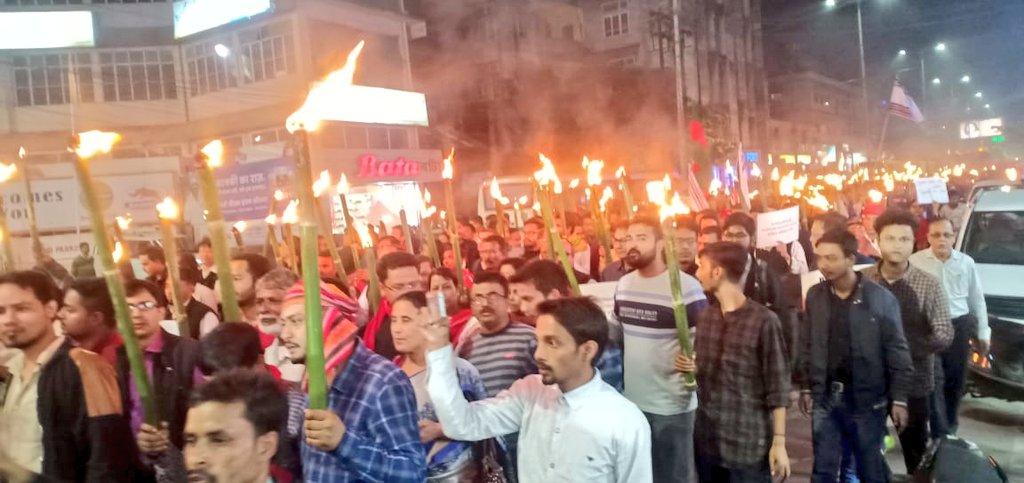At least 14 petitions have been filed against the Citizenship Act by political parties, several lawyers, NGOs, student rights organizations and civil rights activists.
Senior advocates and Congress leaders Abhishek Manu Singhvi and Kapil Sibal mentioned the pleas before the three-judge bench headed by Chief Justice SA Bobde.
The bench, which also comprises Justices BR Gavai and Surya Kant, decided to club all the petitions challenging the validity of the Act and hear them on December 18.
The first petition was filed by the Indian Union of Muslim League (IUML) on November 12, even before the contentious bill was signed by the president.
Trinamool Congress MP Mahua Moitra on Saturday filed a petition for an urgent hearing before a bench headed by Chief Justice of India SA. Bobde.
Moitra, in her plea, contended that “the Act is an attempt to destroy the principles of pluralism and secularism envisaged by the Constitution”. She also sought the top court’s direction to suspend the operation of the Act and all actions under it pending disposal of her plea.
Congress leader and former minister Jairam Ramesh in his petition said the Act is “discriminatory” and a “brazen attack on the core fundamental rights”.
The impugned legislation violates the fundamental rights guaranteed under Article 14 and Article 21 of the Constitution. The Act is challenged on the grounds that the classification on the basis of religion is unreasonable and arbitrary, Ramesh’s petition said.
In his petition, Jairam Ramesh has sought a declaration that the Act is “ultra vires” or violative of the Assam Accord of 1985, the Constitution and international legislations and obligations under international covenants to which India is a signatory.
Former Union Minister P Chidambaram will also file another petition on behalf of former Assam Chief Minister Tarun Gogoi.
AIMIM chief and Hyderabad MP Asaduddin Owaisi, who has also filed a petition in the Supreme Court, had asked Home Minister Amit Shah in the Lok Sabha why he “hated Muslims” so much.
Owaisi, in his petition, has raised the contentions that the Act pushes forcible conversion, discriminates on the ground of religion and illegally divides migrants while urging the court to lift the veil and see the “unholy nexus” between the Act and the National Register of Citizens exercise being carried out in Assam.
Several student organisations, including All Assam Students Union, Peace Party, Citizens Against Hate, NGOs, politician and actor Kamal Hassan, advocates like ML Sharma, and law students have also approached the apex court challenging the constitutionality of the Act.
Meanwhile, the Asom Gana Parishad (AGP), an ally of the ruling BJP, which had so far supported the law, wants to challenge it in the Supreme Court saying “the indigenous people of Assam are apprehensive that their identity and language might come under threat from the influx of refugees”.
The Act seeks to provide Indian citizenship to religiously persecuted Hindus, Parsis, Christians, Buddhists, Jains and Sikhs from Pakistan, Bangladesh and Afghanistan, with a cut-off date of their entry into India on December 31, 2014.Muslims have been excluded from the ambit of the law.
The controversial Act is receiving serious criticism and opposition from several quarters for being discriminatory and against the interests of the people by granting citizenship to people from foreign nations and this would create an identity crisis for the people in the North-East states.
Jamia Millia Islamia University and Aligarh Muslim University turned into battlegrounds on Sunday as police entered the campus and run riot to prevent the students from protesting.


